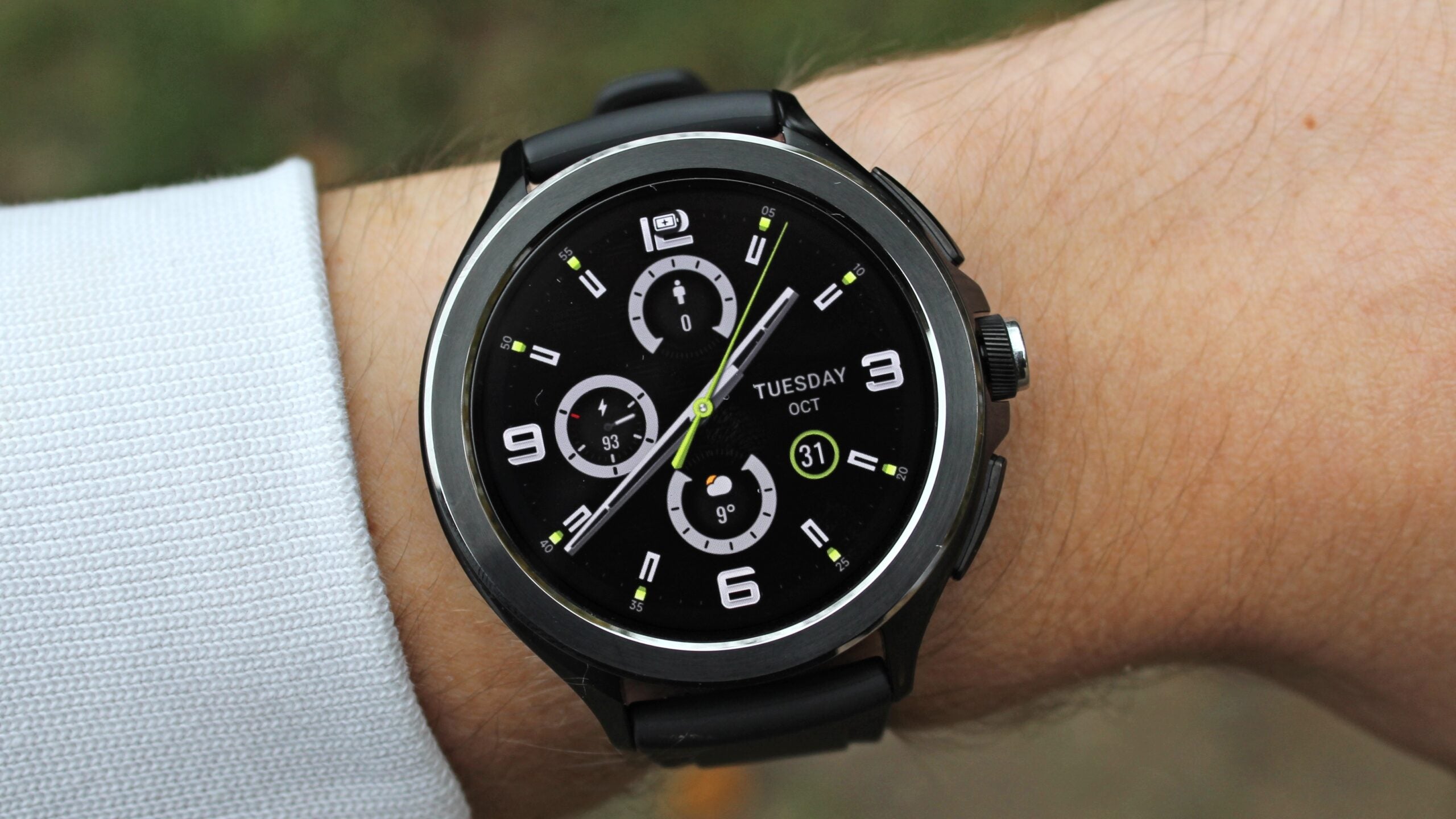Verdict
The Xiaomi Watch 2 Pro flatters to deceive, with consistent bugs and average accuracy plaguing the experience across the board. This could be an option for those who want an affordable and well-built smartwatch with Google’s services attached, but it’s certainly not one we thoroughly recommend.
Pros
- Clean design and display
- Third-party apps
- True two-day battery life
Cons
- Heavy and clunky on the wrist
- Xiaomi’s Wear OS skin is buggy
- Tracking accuracy is poor
-
Wear OS support:This is the first Xiaomi smartwatch to run Wear OS -
Qualcomm Snapdragon W5+ Gen 1 platformChip ensures a zippy performance -
Dual-frequency GNSS trackingAllows the watch to accurately track your runs
Introduction
The return of Wear OS as a competitive platform has been swift, and no smartwatch better embodies this rebirth quite like the Xiaomi Watch 2 Pro.
Like Samsung’s return to the platform in 2021, Xiaomi’s arrival makes plenty of sense. While the company continues to dominate the budget fitness tracker market, it’s seen less traction with its smartwatches – and recent releases like Watch S1 Pro showed the glaring limitations of life without legitimate third-party app support.
Emboldened by the might of Google’s services, Xiaomi isn’t holding back with this Wear OS debut. With the promise of multi-day battery life, dual-frequency GPS, and some novel health features, it’s a smartwatch with an enviable spec sheet that immediately shoots into contention for the title of ‘best Wear OS smartwatch’.
But these kinds of titles aren’t won on paper, and, after extensive real-world testing, the Xiaomi Watch 2 Pro proves why. Here are my thoughts.
Design and screen
- Singular 47.6mm case size
- Stainless steel case; 54.5g
- 1.43-inch AMOLED display
How you feel about the design of the Watch 2 Pro will largely depend on how you view the rest of the competition.
For those who find the Pixel Watch 2’s 41mm case to be too small to even take seriously, or the TicWatch 5 not quite stylish enough, the 47.6mm case of Xiaomi’s offering is likely the perfect remedy. It’s anything but unisex, but I think those who prefer bigger watches that can blend into more formal occasions will be drawn in by the Watch 2 Pro’s look.
It’s cleaner-looking than most of its Wear OS teammates, and the heft of its 11.8mm thickness and 54.5g weight means that it does feel like a substantial, well-made watch.
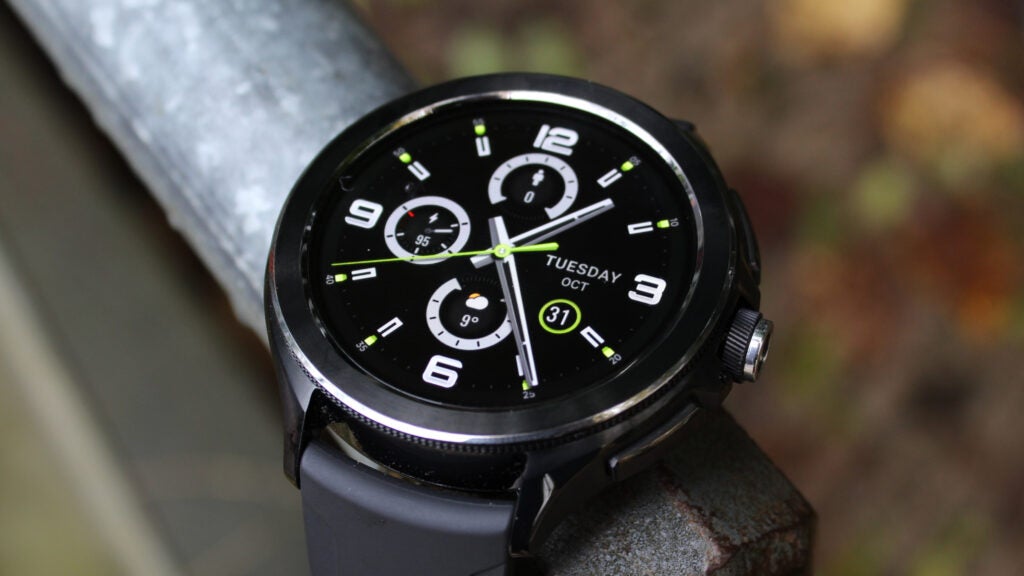
The issue with this added chunk is that it’s a pretty unpleasant watch to wear during exercise or sleep tracking. It may be around the same thickness as the TicWatch Pro 5, and only around 10g heavier, but it feels very different in terms of comfort.
I frequently adjusted the strap during runs in order to avoid the case slipping, and the distribution of that stainless steel against a plastic strap just doesn’t really work that well.
For those who don’t really plan on using the Watch 2 Pro for much vigorous exercise, I’m sure this will be no problem, but it’s certainly been my least favourite of the Wear OS 2023 class to strap on for a 24/7 testing period.
On the other hand, I don’t really have any complaints about the 1.43-inch AMOLED display. The 60Hz refresh rate does seem slightly more jittery than other Wear OS watches, but the clarity and brightness are superb in all conditions I tested in.
Features and performance
- Wear OS 3.5 out of the box
- Speedy performance from Snapdragon W5+ Gen 1
- Plagued by bugs and companion app issues
The introduction of Wear OS is undoubtedly the most interesting aspect of the Xiaomi Watch 2 Pro, promising to reach above the barebones experience offered by older Xiaomi watches.
While this does finally mean there’s a Xiaomi watch that can deliver integration with the likes of Google Maps, Wallet, Home, and even Assistant, this hasn’t transformed the experience in quite the way I hoped it would.
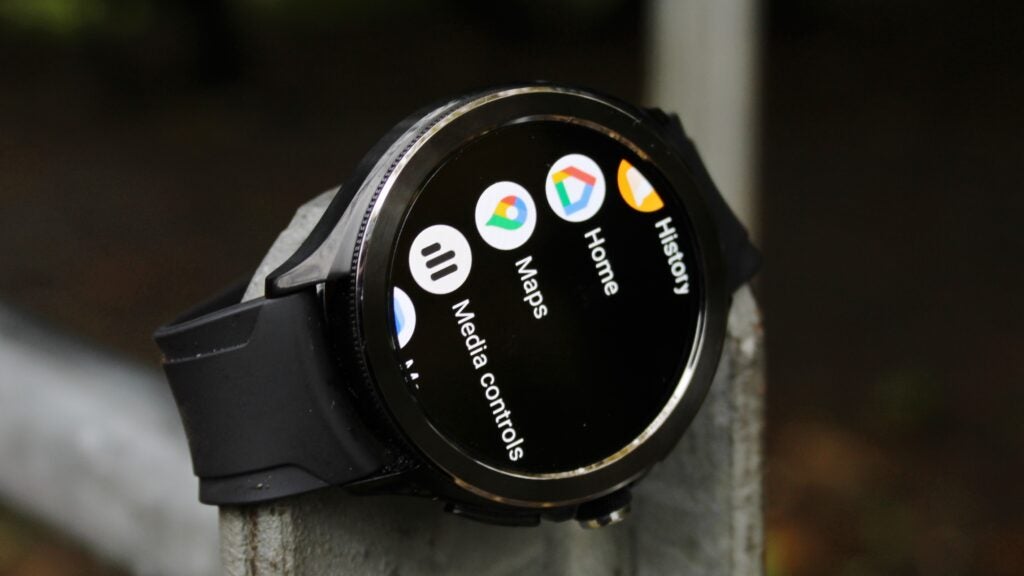
Xiaomi has essentially baked in the core elements of Google’s software here, and that is good in the case of apps, the odd watch face, and streamlining logins, but there are still serious issues with a lack of polish here with the company’s MIUI skin.
I’ve encountered a couple of instances of the watch becoming locked on a loading screen after being taken off charge, while Spotify has also crashed during playlist downloading on a couple of occasions, too.
This kind of stuff may be forgivable, even if it’s not something you’ll find on other Wear OS skins, but there’s a glaring lack of intuitive features here, too. In some ways, it feels like a skin that hasn’t been beta-tested.
For example, there’s no setting that allows you to quickly kill the screen for sleep hours (unless you set up a schedule), and workout tracking screens don’t appear on the display throughout the course of tracking, which means you have to awkwardly bring up the workout app mid-flow.
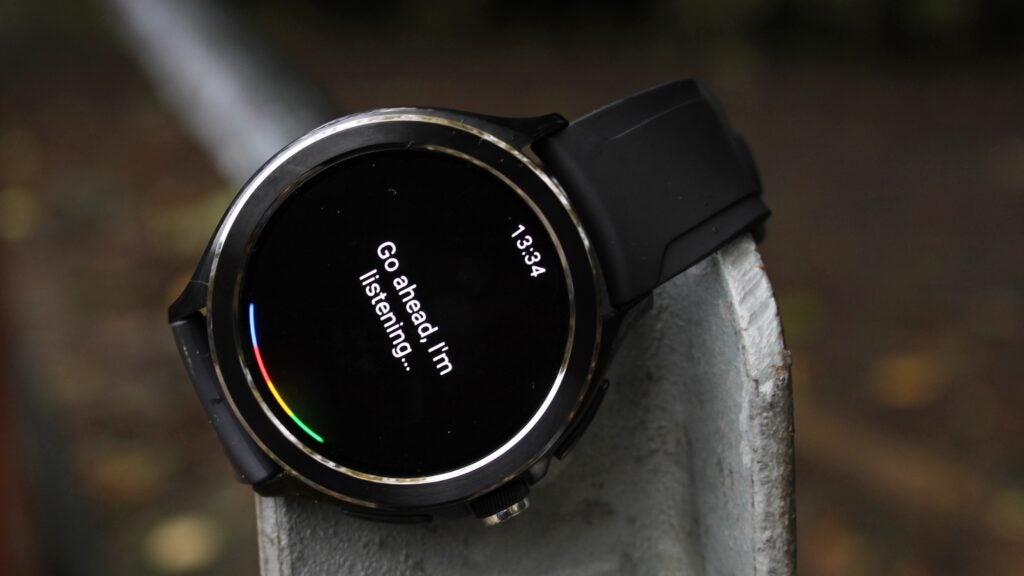
And then there’s the Mi Fitness app, which will frequently present you with bugged information that you can’t view – or, as I’ll detail below, data that just doesn’t really add up.
While the addition of Google’s services is undoubtedly great, and the Qualcomm Snapdragon W5+ platform ensures the experience generally remains zippy, this feels like a bit of a missed opportunity from Xiaomi to deliver an effective software experience.
Fitness and health tracking
- Dual-frequency GNSS tracking underperforms
- Heart monitoring struggles with changes in intensity
- Recovery insights aren’t reliable
Xiaomi has a strong tendency to overdeliver features and underperform the execution of them in its wearables, and this theme very much continues with the Xiaomi Watch 2 Pro’s tracking.
Whether it’s heart rate monitoring accuracy, GPS tracking, or the general swathe of data, there are some major caveats to grasp here.
I found the Watch 2 Pro’s estimations of VO2 Max, recovery time from workouts, training load and the like to be nothing better than very rough ballpark figures when compared to the ranges provided by either Garmin, Whoop, or Oura, and even something basic like step tracking was fairly inconsistent.
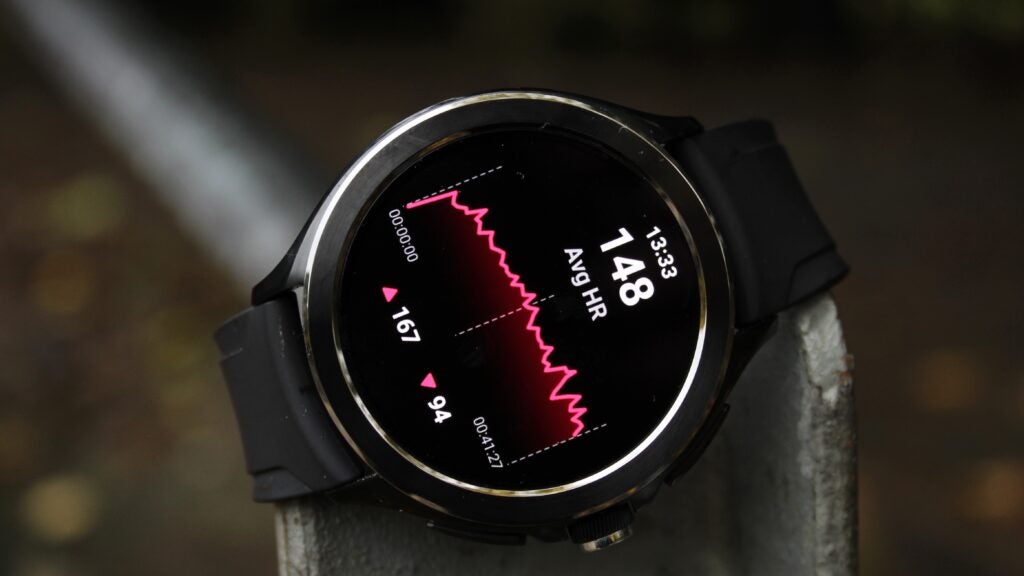
In the meatier areas of exercise tracking, it suffers from both glitches and, generally, pretty average accuracy.
Heart rate monitoring, for example, can often stay pretty close to a Garmin Epix Pro (Gen 2) or Wahoo Tickr X chest strap when the pace is steady, but it begins to deviate quite drastically as soon as the gears of intensity change.
This means average HR readings become skewed by around 5-7 BPM less than what they should be, while I also found the odd session was completely bugged and did not pick up my heart rate.
GPS accuracy fares slightly better, and is enough to gain at least a solid insight into the kind of distance you’ve covered, but this is still by no means the same kind of laser-sharp dual-frequency GNSS accuracy that I’ve come to expect from Apple and Garmin’s comparable options.
It also suffers from relatively frequent bugged session syncs over to the Mi Fitness companion app, which renders post-workout data fairly useless.
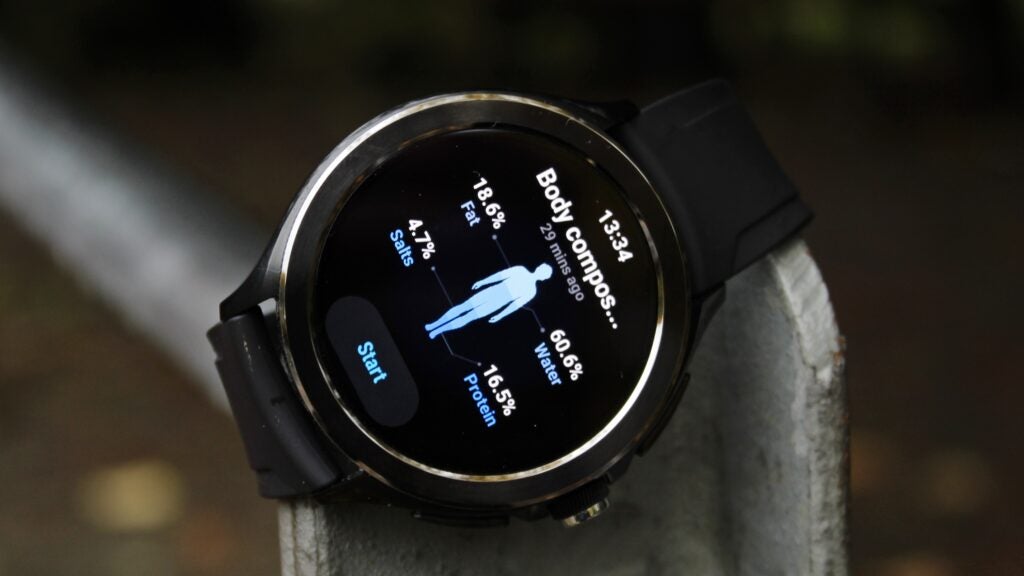
Xiaomi has managed to deliver something relatively novel within the Watch 2 Pro’s health tracking – body composition analysis – which is commendable in an increasingly competitive area of smartwatches.
I have seen Samsung offer this feature (with mixed accuracy) over the last couple of watch generations, though it’s always required a Samsung phone to use it.
That’s not the case here, of course, which means you can quickly receive a breakdown of your body’s muscle mass, fat percentage and more from simply holding your middle and ring fingers on the device’s two side buttons.
You will also have to know your weight and enter this manually, so this is very much just a calculation of proportions and not wholesale mimicking of a smart scale.
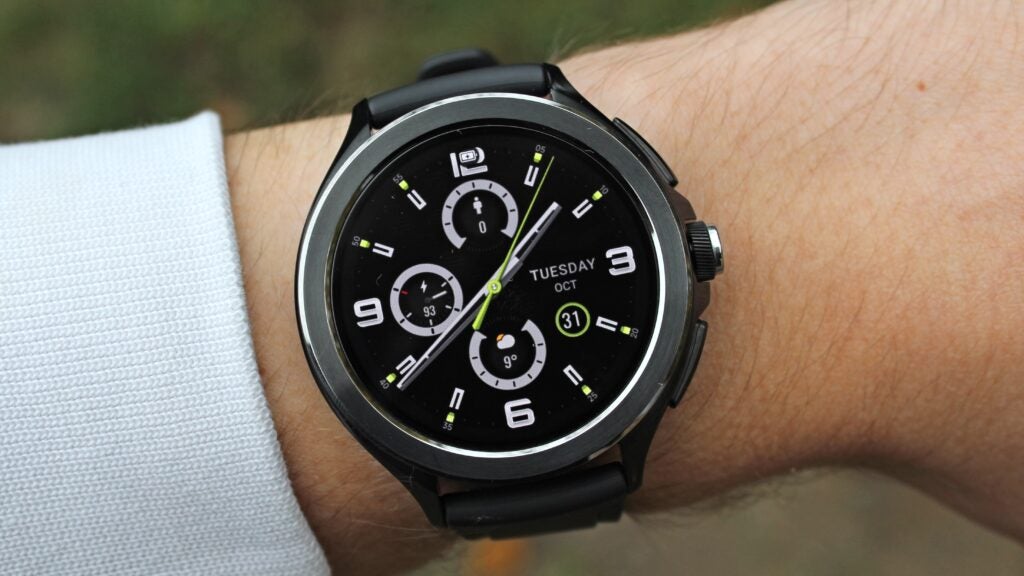
It all sounds great on paper, but, as with most things performed by the Watch 2 Pro, I found the accuracy to be pretty rough here.
Something like body fat percentage, for example, was registered around 5% higher than the 14.7-15.1% range delivered by the Fitbit Aria 2 and Garmin Index S2, while back-to-back readings will also see this figure fluctuate by as much as 2-3%. Not great, even for illustrative purposes.
Things are, at least, a little better in other areas of Xiaomi’s health tracking. It’s still a little irksome that many features – like SpO2 monitoring – are turned off by default, but the data ranges for this, skin temperature, resting heart rate and more are all in a good place.
Though Xiaomi doesn’t have the same pedigree in sleep tracking as you’ll find from the likes of Fitbit, the experience on offer here is good enough for very casual glances at your slumber.
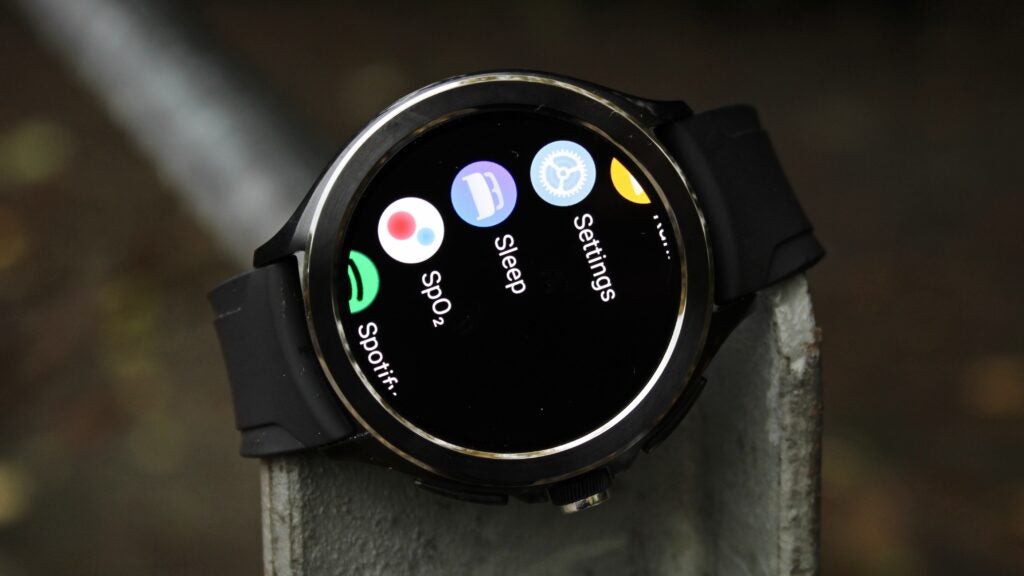
Fall asleep, time in bed and wake-up times can match up well with the estimations from Garmin, Whoop, and Oura, and, once you turn on ‘advanced monitoring’, you’ll also gain insights into sleep stages.
It’s by no means a comprehensive view, and there’s also no recovery insights or knock-on effect tracking your sleep has on the rest of the Xiaomi Watch 2 Pro experience, but it does at least manage to do the basics to a certain standard.
The only real issue here is, once again, the level of presentation within Mi Fitness. I’m unable to see any of my sleep in the daily view due to a bug, which means my breakdowns are confined to weekly or monthly summaries. It’s another example of the lack of polish across the board.
Battery life
- Can last 2-3 days on a single charge
- Battery modes and feature control allow battery flexibility
- Charging speeds are rapid
With the power efficiency of the Snapdragon W5+ Gen 1 processor, the Xiaomi Watch 2 Pro is able to achieve true multi-day battery life.
Undoubtedly one of the few bright spots of the watch, I typically found that it was able to clear two days comfortably – even with the always-on display enabled, medium brightness, notifications streaming in, an hour of tracked workout time and some previously disabled settings turned on.
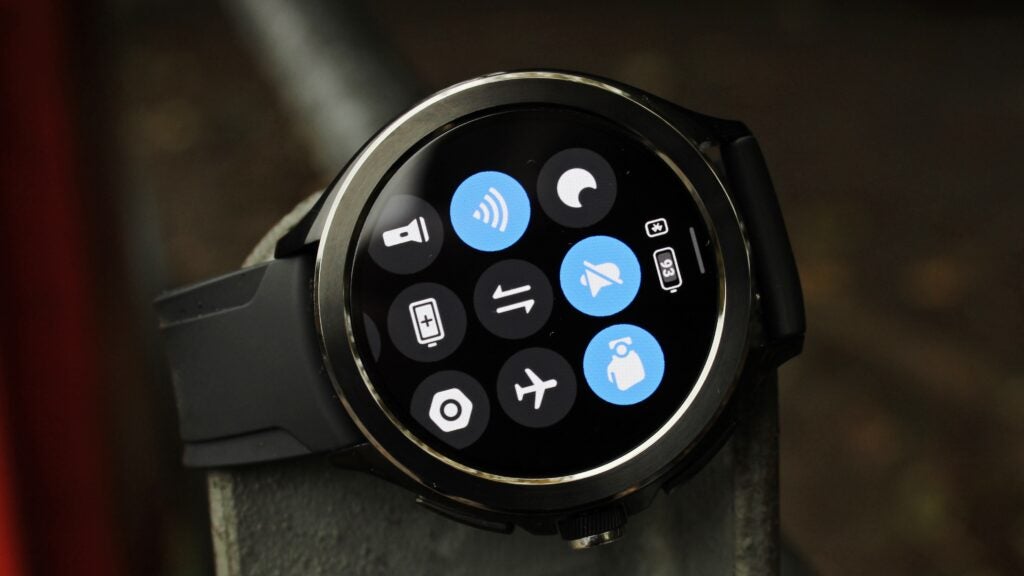
Significantly heavier days may see you charging after around 45-48 hours, but Xiaomi’s estimation of 65 hours is probably about right for most use cases.
And when it’s time to restore some juice, it’s also incredibly sharp. I was typically able to go from flat (or very low battery) in around 40 minutes, and this also means topping up enough battery to get through the rest of the day is as simple as placing it on the charging puck for 10-15 minutes.
Latest deals
Should you buy it?
If you want an affordable Wear OS smartwatch
Comfortably cheaper than rival options from Samsung, Google, and Mobvoi, this is the best way to access the latest version of Wear OS.
If you want a reliable tracking experience
Whether it’s in the fitness tracking or health features, the Watch 2 Pro is plagued by inaccuracies and companion app issues.
Final Thoughts
A spec sheet superstar that flatters to deceive, the Xiaomi Watch 2 Pro is a difficult smartwatch to recommend. Tracking accuracy is pretty unreliable across the board, while a certain unpolished feel taints what should be a solid addition to the Wear OS collection.
I still think it could be an option to consider for those who crave a big, solid-feeling Wear OS smartwatch – especially given the relatively low price – but there are still plenty of caveats attached to this particular skin of Google’s software. Check out our Best Smartwatch guide for more options.
How we test
We thoroughly test every smartwatch we review. We use industry-standard testing to compare features properly and we use the watch as our main device over the review period. We’ll always tell you what we find and we never, ever, accept money to review a product.
Worn as our main tracker during the testing period
Thorough health and fitness tracking testing
FAQs
The Xiaomi Watch 2 Pro is available from £239.99.
Yes, the Xiaomi Watch 2 Pro is available with eSim from £289.99, but only supports Vodafone and O2 networks in the UK.
Verdict
The Xiaomi Watch 2 Pro flatters to deceive, with consistent bugs and average accuracy plaguing the experience across the board. This could be an option for those who want an affordable and well-built smartwatch with Google’s services attached, but it’s certainly not one we thoroughly recommend.
Pros
- Clean design and display
- Third-party apps
- True two-day battery life
Cons
- Heavy and clunky on the wrist
- Xiaomi’s Wear OS skin is buggy
- Tracking accuracy is poor
-
Wear OS support:This is the first Xiaomi smartwatch to run Wear OS -
Qualcomm Snapdragon W5+ Gen 1 platformChip ensures a zippy performance -
Dual-frequency GNSS trackingAllows the watch to accurately track your runs
Introduction
The return of Wear OS as a competitive platform has been swift, and no smartwatch better embodies this rebirth quite like the Xiaomi Watch 2 Pro.
Like Samsung’s return to the platform in 2021, Xiaomi’s arrival makes plenty of sense. While the company continues to dominate the budget fitness tracker market, it’s seen less traction with its smartwatches – and recent releases like Watch S1 Pro showed the glaring limitations of life without legitimate third-party app support.
Emboldened by the might of Google’s services, Xiaomi isn’t holding back with this Wear OS debut. With the promise of multi-day battery life, dual-frequency GPS, and some novel health features, it’s a smartwatch with an enviable spec sheet that immediately shoots into contention for the title of ‘best Wear OS smartwatch’.
But these kinds of titles aren’t won on paper, and, after extensive real-world testing, the Xiaomi Watch 2 Pro proves why. Here are my thoughts.
Design and screen
- Singular 47.6mm case size
- Stainless steel case; 54.5g
- 1.43-inch AMOLED display
How you feel about the design of the Watch 2 Pro will largely depend on how you view the rest of the competition.
For those who find the Pixel Watch 2’s 41mm case to be too small to even take seriously, or the TicWatch 5 not quite stylish enough, the 47.6mm case of Xiaomi’s offering is likely the perfect remedy. It’s anything but unisex, but I think those who prefer bigger watches that can blend into more formal occasions will be drawn in by the Watch 2 Pro’s look.
It’s cleaner-looking than most of its Wear OS teammates, and the heft of its 11.8mm thickness and 54.5g weight means that it does feel like a substantial, well-made watch.

The issue with this added chunk is that it’s a pretty unpleasant watch to wear during exercise or sleep tracking. It may be around the same thickness as the TicWatch Pro 5, and only around 10g heavier, but it feels very different in terms of comfort.
I frequently adjusted the strap during runs in order to avoid the case slipping, and the distribution of that stainless steel against a plastic strap just doesn’t really work that well.
For those who don’t really plan on using the Watch 2 Pro for much vigorous exercise, I’m sure this will be no problem, but it’s certainly been my least favourite of the Wear OS 2023 class to strap on for a 24/7 testing period.
On the other hand, I don’t really have any complaints about the 1.43-inch AMOLED display. The 60Hz refresh rate does seem slightly more jittery than other Wear OS watches, but the clarity and brightness are superb in all conditions I tested in.
Features and performance
- Wear OS 3.5 out of the box
- Speedy performance from Snapdragon W5+ Gen 1
- Plagued by bugs and companion app issues
The introduction of Wear OS is undoubtedly the most interesting aspect of the Xiaomi Watch 2 Pro, promising to reach above the barebones experience offered by older Xiaomi watches.
While this does finally mean there’s a Xiaomi watch that can deliver integration with the likes of Google Maps, Wallet, Home, and even Assistant, this hasn’t transformed the experience in quite the way I hoped it would.

Xiaomi has essentially baked in the core elements of Google’s software here, and that is good in the case of apps, the odd watch face, and streamlining logins, but there are still serious issues with a lack of polish here with the company’s MIUI skin.
I’ve encountered a couple of instances of the watch becoming locked on a loading screen after being taken off charge, while Spotify has also crashed during playlist downloading on a couple of occasions, too.
This kind of stuff may be forgivable, even if it’s not something you’ll find on other Wear OS skins, but there’s a glaring lack of intuitive features here, too. In some ways, it feels like a skin that hasn’t been beta-tested.
For example, there’s no setting that allows you to quickly kill the screen for sleep hours (unless you set up a schedule), and workout tracking screens don’t appear on the display throughout the course of tracking, which means you have to awkwardly bring up the workout app mid-flow.

And then there’s the Mi Fitness app, which will frequently present you with bugged information that you can’t view – or, as I’ll detail below, data that just doesn’t really add up.
While the addition of Google’s services is undoubtedly great, and the Qualcomm Snapdragon W5+ platform ensures the experience generally remains zippy, this feels like a bit of a missed opportunity from Xiaomi to deliver an effective software experience.
Fitness and health tracking
- Dual-frequency GNSS tracking underperforms
- Heart monitoring struggles with changes in intensity
- Recovery insights aren’t reliable
Xiaomi has a strong tendency to overdeliver features and underperform the execution of them in its wearables, and this theme very much continues with the Xiaomi Watch 2 Pro’s tracking.
Whether it’s heart rate monitoring accuracy, GPS tracking, or the general swathe of data, there are some major caveats to grasp here.
I found the Watch 2 Pro’s estimations of VO2 Max, recovery time from workouts, training load and the like to be nothing better than very rough ballpark figures when compared to the ranges provided by either Garmin, Whoop, or Oura, and even something basic like step tracking was fairly inconsistent.

In the meatier areas of exercise tracking, it suffers from both glitches and, generally, pretty average accuracy.
Heart rate monitoring, for example, can often stay pretty close to a Garmin Epix Pro (Gen 2) or Wahoo Tickr X chest strap when the pace is steady, but it begins to deviate quite drastically as soon as the gears of intensity change.
This means average HR readings become skewed by around 5-7 BPM less than what they should be, while I also found the odd session was completely bugged and did not pick up my heart rate.
GPS accuracy fares slightly better, and is enough to gain at least a solid insight into the kind of distance you’ve covered, but this is still by no means the same kind of laser-sharp dual-frequency GNSS accuracy that I’ve come to expect from Apple and Garmin’s comparable options.
It also suffers from relatively frequent bugged session syncs over to the Mi Fitness companion app, which renders post-workout data fairly useless.

Xiaomi has managed to deliver something relatively novel within the Watch 2 Pro’s health tracking – body composition analysis – which is commendable in an increasingly competitive area of smartwatches.
I have seen Samsung offer this feature (with mixed accuracy) over the last couple of watch generations, though it’s always required a Samsung phone to use it.
That’s not the case here, of course, which means you can quickly receive a breakdown of your body’s muscle mass, fat percentage and more from simply holding your middle and ring fingers on the device’s two side buttons.
You will also have to know your weight and enter this manually, so this is very much just a calculation of proportions and not wholesale mimicking of a smart scale.

It all sounds great on paper, but, as with most things performed by the Watch 2 Pro, I found the accuracy to be pretty rough here.
Something like body fat percentage, for example, was registered around 5% higher than the 14.7-15.1% range delivered by the Fitbit Aria 2 and Garmin Index S2, while back-to-back readings will also see this figure fluctuate by as much as 2-3%. Not great, even for illustrative purposes.
Things are, at least, a little better in other areas of Xiaomi’s health tracking. It’s still a little irksome that many features – like SpO2 monitoring – are turned off by default, but the data ranges for this, skin temperature, resting heart rate and more are all in a good place.
Though Xiaomi doesn’t have the same pedigree in sleep tracking as you’ll find from the likes of Fitbit, the experience on offer here is good enough for very casual glances at your slumber.

Fall asleep, time in bed and wake-up times can match up well with the estimations from Garmin, Whoop, and Oura, and, once you turn on ‘advanced monitoring’, you’ll also gain insights into sleep stages.
It’s by no means a comprehensive view, and there’s also no recovery insights or knock-on effect tracking your sleep has on the rest of the Xiaomi Watch 2 Pro experience, but it does at least manage to do the basics to a certain standard.
The only real issue here is, once again, the level of presentation within Mi Fitness. I’m unable to see any of my sleep in the daily view due to a bug, which means my breakdowns are confined to weekly or monthly summaries. It’s another example of the lack of polish across the board.
Battery life
- Can last 2-3 days on a single charge
- Battery modes and feature control allow battery flexibility
- Charging speeds are rapid
With the power efficiency of the Snapdragon W5+ Gen 1 processor, the Xiaomi Watch 2 Pro is able to achieve true multi-day battery life.
Undoubtedly one of the few bright spots of the watch, I typically found that it was able to clear two days comfortably – even with the always-on display enabled, medium brightness, notifications streaming in, an hour of tracked workout time and some previously disabled settings turned on.

Significantly heavier days may see you charging after around 45-48 hours, but Xiaomi’s estimation of 65 hours is probably about right for most use cases.
And when it’s time to restore some juice, it’s also incredibly sharp. I was typically able to go from flat (or very low battery) in around 40 minutes, and this also means topping up enough battery to get through the rest of the day is as simple as placing it on the charging puck for 10-15 minutes.
Latest deals
Should you buy it?
If you want an affordable Wear OS smartwatch
Comfortably cheaper than rival options from Samsung, Google, and Mobvoi, this is the best way to access the latest version of Wear OS.
If you want a reliable tracking experience
Whether it’s in the fitness tracking or health features, the Watch 2 Pro is plagued by inaccuracies and companion app issues.
Final Thoughts
A spec sheet superstar that flatters to deceive, the Xiaomi Watch 2 Pro is a difficult smartwatch to recommend. Tracking accuracy is pretty unreliable across the board, while a certain unpolished feel taints what should be a solid addition to the Wear OS collection.
I still think it could be an option to consider for those who crave a big, solid-feeling Wear OS smartwatch – especially given the relatively low price – but there are still plenty of caveats attached to this particular skin of Google’s software. Check out our Best Smartwatch guide for more options.
How we test
We thoroughly test every smartwatch we review. We use industry-standard testing to compare features properly and we use the watch as our main device over the review period. We’ll always tell you what we find and we never, ever, accept money to review a product.
Worn as our main tracker during the testing period
Thorough health and fitness tracking testing
FAQs
The Xiaomi Watch 2 Pro is available from £239.99.
Yes, the Xiaomi Watch 2 Pro is available with eSim from £289.99, but only supports Vodafone and O2 networks in the UK.


















